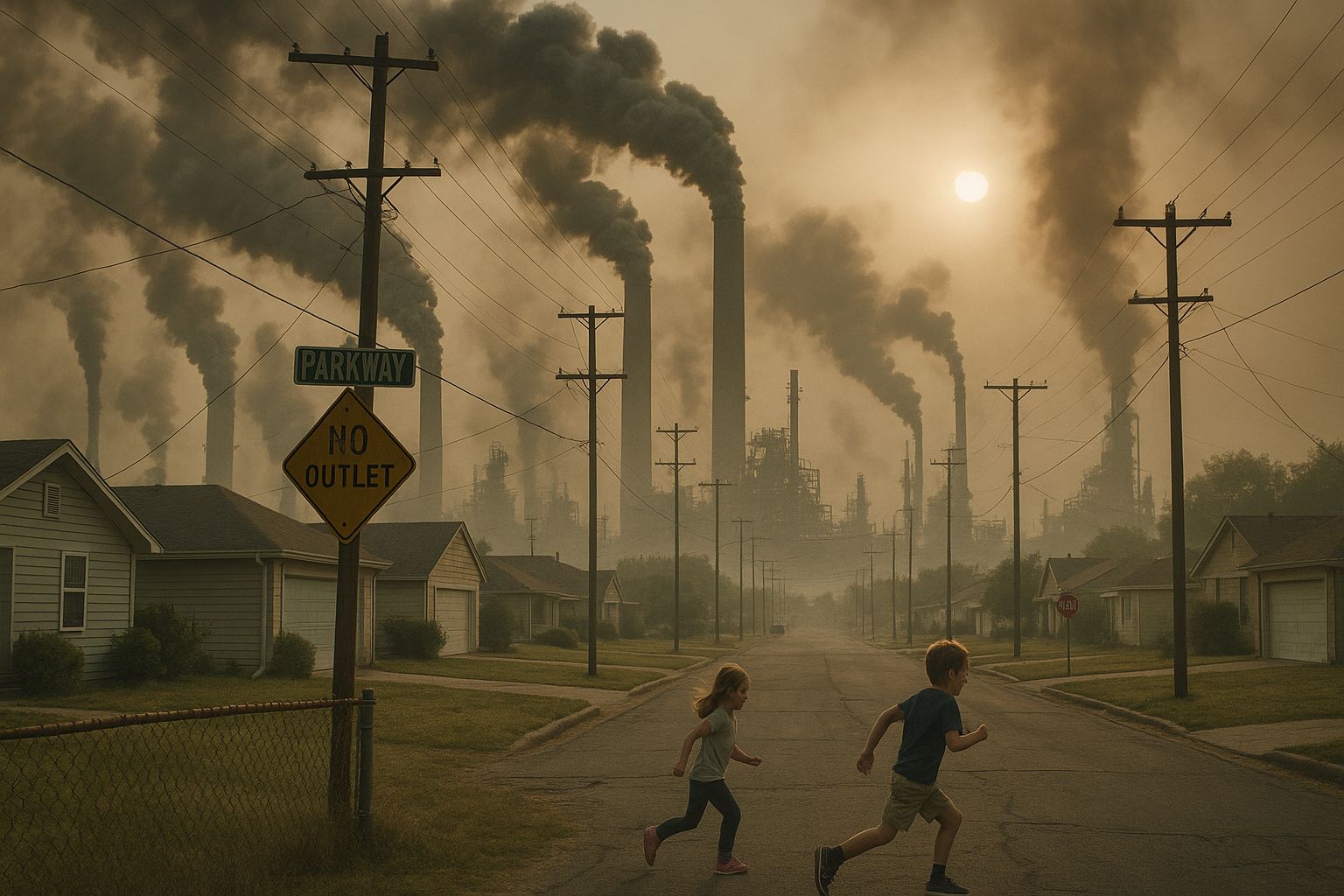- Green Glow
- Posts
- 🌱 Trump’s Rollbacks Could Spike Cancer-Causing Pollution in America 🚨🌫️
🌱 Trump’s Rollbacks Could Spike Cancer-Causing Pollution in America 🚨🌫️
Trump’s rollbacks on environmental protections could spike cancer-causing pollution across America. Learn how deregulation threatens public health, vulnerable communities, and the fight against cancer.
Cancer remains one of the leading causes of death in the United States, affecting millions of families each year. While medical research and early detection have saved lives, prevention through cleaner air, water, and safer environments remains essential. However, recent policy shifts under the Trump administration threaten to reverse decades of progress in environmental protections—potentially leading to increased exposure to cancer-causing pollution.
Table of Contents

Scientific evidence has long confirmed the connection between pollution and cancer. Fine particulate matter (PM2.5), diesel exhaust, mercury emissions, asbestos, and “forever chemicals” like PFAS are all associated with higher cancer risk. Exposure to these toxins not only increases the likelihood of lung cancer but also contributes to other serious health conditions, including cardiovascular disease, reproductive harm, and developmental disorders.
Low-income communities, Indigenous populations, and communities of color face a disproportionate burden, often living closer to industrial facilities and highways where pollution is most concentrated.
Trump’s Environmental Rollbacks Explained
The Trump administration pursued aggressive deregulation across industries, rolling back or weakening multiple protections designed to safeguard public health. Some of the most notable include:
Air Pollution Standards – Loosening restrictions on soot, mercury, and hazardous “air toxics” from power plants and industrial sites.
Chemical Safety – Slowing down regulations on PFAS in drinking water and delaying asbestos bans despite known cancer risks.
Climate Protections – Attempting to overturn the “endangerment finding” that gives the EPA authority to regulate greenhouse gases, which also affect air quality.
Compliance Delays – Granting facilities years of exemptions before meeting updated toxic emissions standards.
These changes prioritize short-term cost savings for polluters over long-term health protections for the public.
Public Health Consequences
The consequences of these rollbacks are alarming. Health experts estimate that weaker standards and delayed compliance could result in 200,000 premature deaths in the next 25 years. Cancer incidence, particularly lung cancer, is projected to rise as Americans inhale more soot and toxic emissions.
Access to health care further complicates the picture. Cuts to the Affordable Care Act, proposed changes to insurance, and reduced funding for cancer prevention programs mean that many Americans—especially vulnerable groups—may face higher risks without adequate medical support.

Who Suffers the Most?
Not all communities face equal risks. Environmental justice research shows that industrial facilities are disproportionately located near low-income neighborhoods and communities of color. These populations already breathe dirtier air and drink less reliable water, compounding health risks that rollbacks will only worsen.
Children and the elderly are especially vulnerable. Developing bodies and weakened immune systems make exposure to toxic pollutants even more dangerous in these groups.
The Cost of Deregulation vs. The Value of Lives
Proponents of deregulation argue that relaxing environmental rules saves industries billions in compliance costs. Yet research shows the economic benefits of cleaner air and water far outweigh these costs. Healthier populations mean fewer hospitalizations, higher worker productivity, and reduced public health spending.
By prioritizing polluter profits, the U.S. risks trading away not just lives but also economic stability.
A Better Path Forward
Instead of dismantling protections, the U.S. should focus on:
Strengthening Clean Air and Water Standards to reduce exposure to known carcinogens.
Accelerating Clean Energy Adoption through renewable investments and stricter emissions standards.
Protecting Vulnerable Communities by addressing environmental racism and ensuring equitable enforcement.
Expanding Cancer Research and Prevention Programs to save lives and lower long-term health costs.

Conclusion
The Trump administration’s rollback of environmental protections poses a clear and present danger to public health. By increasing exposure to cancer-causing pollutants, these policies risk reversing decades of progress in the fight against cancer. Safeguarding the environment is not just about nature—it is about protecting human lives. The path forward must prioritize cleaner air, safer water, and stronger protections for all Americans, especially those most at risk.
FAQs
How do Trump’s environmental rollbacks increase cancer risk?
By weakening or delaying regulations on air and water pollution, these rollbacks allow higher emissions of carcinogens like soot, mercury, asbestos, and PFAS, all linked to cancer and other serious diseases.
Which communities are most affected by these rollbacks?
Low-income neighborhoods, Indigenous populations, and communities of color often live closer to industrial zones and highways, making them more vulnerable to toxic exposure.
What types of pollution are linked to cancer?
Common cancer-causing pollutants include fine particulate matter (PM2.5), diesel exhaust, asbestos, mercury emissions, and PFAS chemicals found in drinking water.
What are the projected health impacts of deregulation?
Experts estimate that weaker standards could lead to 200,000 premature deaths over the next 25 years, along with higher cancer incidence and increased hospitalizations.
What can be done to reduce cancer-causing pollution in America?
Strengthening clean air and water standards, investing in renewable energy, addressing environmental justice, and funding cancer prevention programs are crucial steps forward.
You May Also Like
🌱 How the Rich Are Fueling Global Warming—And What We Can Do About It 🔥💰
🌱 The US Battles the World Over Clean Energy While Renewables Surge at Home ⚡⚔️
🌱 Trump vs. Chinese Media: The Battle Over Blame for Ocean Pollution ⚔️📰
🌱 How the UK's Weather Is Powering the Renewable Energy Revolution 🌦️⚡
🌱 Glaciers Are Melting – Are We Doing Enough to Stop It? 🌡️🧊
External Links
Follow Us:
X: https://www.x.com/greenglownews
Youtube: https://www.youtube.com/@greenglownews
Instagram: https://www.instagram.com/greenglownews
Sponsored Links